Indigenous Cross-Cultural Higher Education Engagement
Indigenous Cross-Cultural Higher Education Engagement – CDU/BIITE’s collaborative HEPPP Mapping Project
This project is about mapping (collect, compile and present) the higher education journeys and experiences of Indigenous people who graduated and have been awarded higher education degrees from CDU (Charles Darwin University) and or BIITE (Batchelor Institute of Indigenous Tertiary Education). This will be done by engaging and inviting the graduates, who have successfully obtained their HE (Higher Education) degree, to share their stories through audio or video interviews, and or yarning circle. The stories will be recorded and shared in a CDU webpage with the main purpose to encourage, inspire and support other Indigenous and non-Indigenous people to undertake a higher education study.
Data will be collected through either interview, yarning circle or both from graduates residing in Daly River, Batchelor, and Palmerston. Data will then be analysed using qualitative thematic analysis to identify key themes in the graduate stories and experiences.
The audio and or video recordings and results from data analysis will provide valuable information that is expected to have positive impact for Indigenous communities, the government and for future generations wishing to pursue a HE degree to further their own aspirations and to understand how to access to HE.
The main aim of this project is to map the higher education journey stories of CDU/BIITE’s Indigenous graduates including their experiences on the cross-cultural aspects of undertaking and completing their studies and being awarded their degrees. The stories will be recorded and shared online with the purpose to inform, encourage and support other Indigenous and non-Indigenous people to engage in higher education. Using the graduate stories, this project endeavours to increase opportunities and aspire Indigenous people to participate, remain, succeed, and complete a higher education study.
What our participants have to say
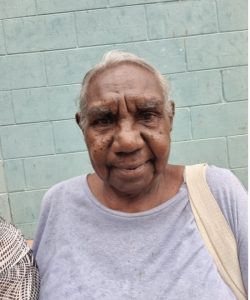
Dr Miriam-Rose Ungunmerr
Baumann AM
“Education is the key to the world I suppose you can say. I mean that’s what the saying is. [It] Gives you confidence in being able to go and do these”
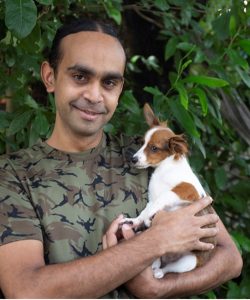
Kieren Karritipul
© Cathy Laudenbach Merrepen Arts
“Yeah, like I have some young people like from the community and other family member come and sit and watch me see do art. I encourage them to do like artwork and stuff to tell their stories for the community and the wider world.”
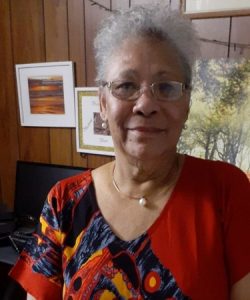
Noressa Bulsey
“I think it’s good to share your stories. Encourage our young generation today. Everyone that wants to study, tell your stories, and put all the parts in the story. You can’t just miss any parts. Give them a true account of your story. I’d encourage community to have a go of it, but for us to share our stories.”
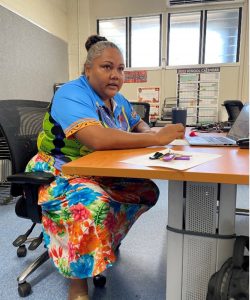
Cynthia Page
“I gained my Bachelor of Teaching and Learning. I completed at the end of 2013 when I was working over Bathurst at the secondary school as an AT. Once I completed it, I started working here at St Francis in early 2014 as a classroom teacher.”
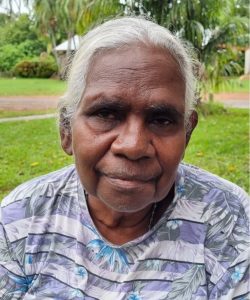
Monica Mushiwan
“I decided to go and learn how to become a teacher. Do that course and finish it so that I can come home and teach our children here at Nauiyu.”
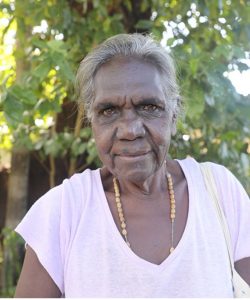
Louise Pandella
© Cathy Laudenbach Merrepen Arts
“Just want to learn and come back and teach at the school.”
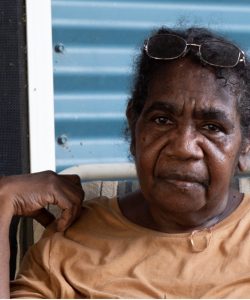
Patricia Mctaggart
© Cathy Laudenbach Merrepen Arts
“I really was like interested in trying to document and keep my language alive so that’s why I went and train at Batchelor.”
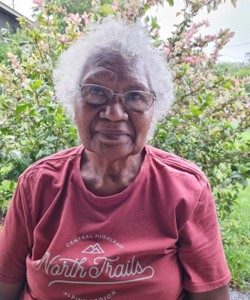
Donna Sullivan
“I just wanted to go back to community or any Indigenous community to help those people there to learn to read and write.”
Team
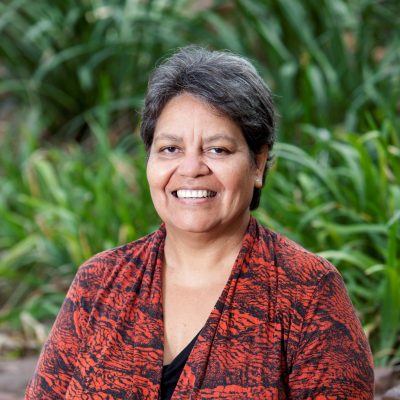
Associate Professor Linda Ford
A/Prof Ford is a senior research fellow in Northern Institute (NI) /Faculty of Arts & Society (FAS) at CDU and has a strong track-record as Principal Investigator (PI) in the management of category 1 research projects and consultancies. Her multidisciplinary research portfolio has expanded over 4-decades including: Education, Indigenous Knowledge, Ethnomusicology, Aboriginal Languages, First Nation Peoples Healthy Environment & Lives, and Community Development. As PI of HEPPP Mapping Project she will contribute invaluable leadership and cultural information through her capacity to network with the research team and participant in recruitment, data analysis, written reports, literature review, publications, and presentations.
T: 08 8946 7203 E: Linda.Ford@cdu.edu.au
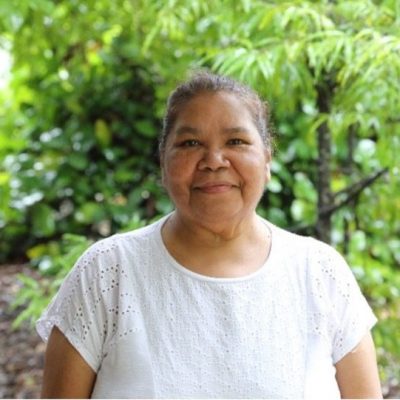
Dr Robyn Ober
Dr Robyn Ober is a Mamu/Djirribal woman from Far North Queensland. She is a co-Investigator on this HEPPP research project, and she is a Lead Researcher at BIITE, Northern Territory that spans 3-decades. She is well renowned for her expertise of both-ways pedagogy, working to combine Indigenous and non-Indigenous ways of knowing, being and learning in teaching practice and research. Her educational and research leadership is internationally and nationally recognised and reflected in her numerous consultancies and research on education delivery, both-ways education, and Indigenous research methodologies in the Northern Territory, national and international Indigenous educational contexts.
T: 08 8946 6246 E: robyn.ober@batchelor.edu.au
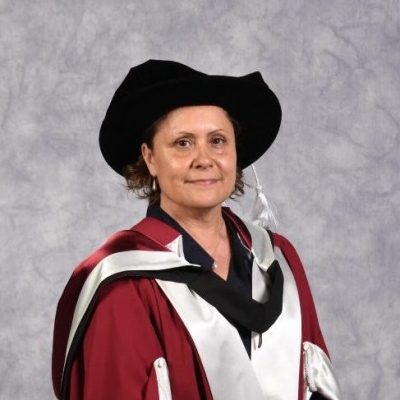
Dr Tracy Woodroffe
Dr Tracy Woodroffe is a local Warumungu Luritja woman. She is an academic/researcher in NI at FAS. She has extensive teaching experience and is an Early Career Researcher with a growing record of accomplishment. She is co-researcher for this HEPPP three-year project. Her current focus is on educational pedagogy, identity, Indigenous perspectives, and the use of Indigenous Knowledges in educational contexts. She has been the lead CI (Chief Investigator) on numerous successful research projects which can be seen on her CDU profile. Past research has included research with and within the NT (Northern Territory) Department of Education.
T: 08 8946 6624 E: Tracy.Woodroffe@cdu.edu.au
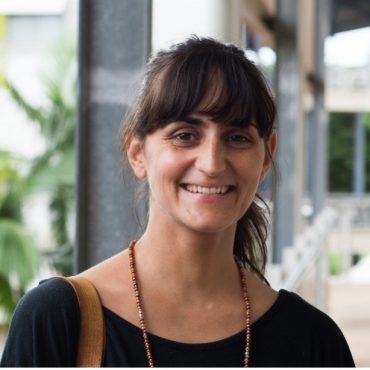
Ms Paola Fischer
Ms Paola Fischer is a lecturer of Linguistics at BIITE where she facilitates and delivers training in language maintenance and revitalisation with Indigenous students. She has a Master’s degree in Romance Languages and Cultural Anthropology and worked in Chile and Germany on the topic of identity and language use. She is an anthropologist and linguist supporting First Nations communities, language speakers and knowledge holders in documenting and recording their cultural and language practices. She is a co-Investigator on this HEPPP research project for three years. As an early career researcher, she is developing her research capacity through this project.
T: 08 8946 6028 E: paola.fischer@batchelor.edu.au
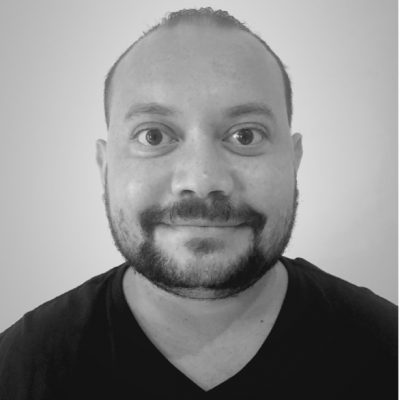
Mr Patrick McKenzie
Patrick McKenzie is a Jirrbal man who traces his cultural heritage back to North Queensland; and has Melanesian and Polynesian ancestry from Papua New Guinea and Cook Islands. Patrick is a Lecturer in Screen and Media at Batchelor Institute of Indigenous Tertiary Education, Northern Territory. In addition to his work in education, he is the Founding Director of Saltwater Bird Productions, a First Nations owned and operated company. As an early researcher, he brings his knowledge and expertise in digital production and storytelling to the project.
T: 08 8939 7453 E: patrick.mckenzie@batchelor.edu.au
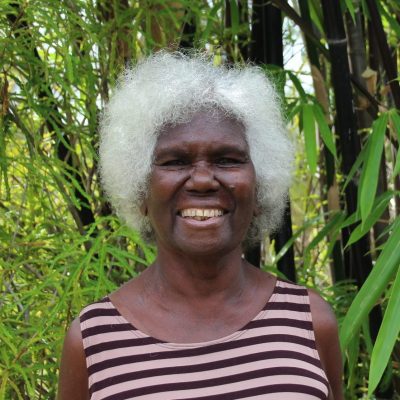
Dr Kathy Gotha Guthadjaka
Dr Guthadjaka is a Senior Research Fellow in NI in the FAS. She is a co-Investigator on this HEPPP research project for three years. As a senior researcher, her research experience is extensive. She has an Honorary Doctoral degree from CDU recognising her invaluable contribution and extensive work in Yolngu Education at Gawa on Elcho Island, Australia. Her Yolngu education leadership of First Nations Peoples in the Top End of the Northern Territory is extensive. She was awarded the Senior Australian of the Year 2018 for her role as an educator and pioneering academic.
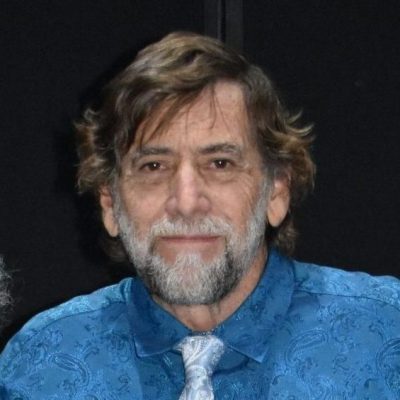
Mr Colin Baker
Mr Baker is a researcher in NI, FAS. He is a co-Investigator on this HEPPP research project for three years. He is Dr Guthadjaka’s carer and research support adviser in NI. His contribution and extensive work in Yolngu Education at Gawa on Elcho Island, Australia, has been extensive. He has advised Yolngu leaders on Yolngu education on Elcho Island in the Top End of the Northern Territory for many decades alongside of Dr Guthadjaka.
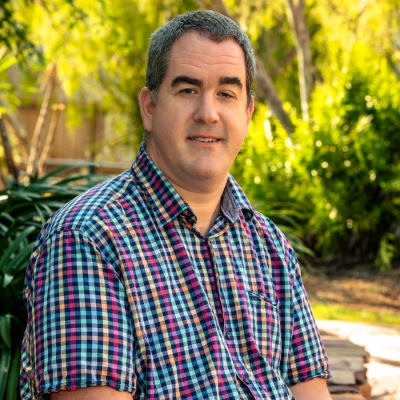
Dr David Karacsonyi
Dr Karacsonyi is a co-Investigator on this HEPPP research project for 3-years in NI, in the Faculty of Arts and Society. As an experienced researcher his wealth of experience is invaluable. He completed his first PhD studies at Eötvös Loránd University (Budapest, Hungary) in 2009. He is currently enrolled in his second PhD at the NI in the FAS. He is interested in the geography of peripheral and rural areas. He has conducted research in Ukraine, Belarus, East Asia, Taiwan, Japan, and China where he has studied the impacts of disasters like Fukushima on rural populations
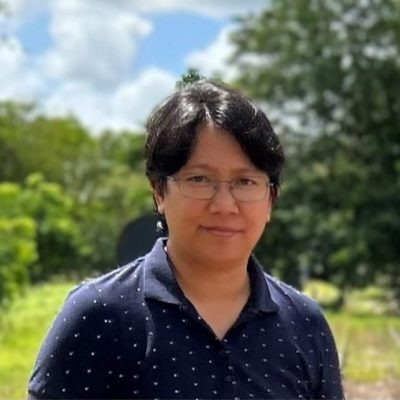
Dr Adriana Ticoalu
Dr Adriana Ticoalu is a researcher at the Northern Institute, Faculty of Arts and Society, since 2019. She is currently working on various projects related to Australian Indigenous people. Adriana is experienced in project coordination and has broad knowledge of Indigenous research. She has been involved in multi-disciplinary research projects including in the areas of education, health, social and STEM in the Northern Territory. She is a co-Investigator on this three years HEPPP research project.
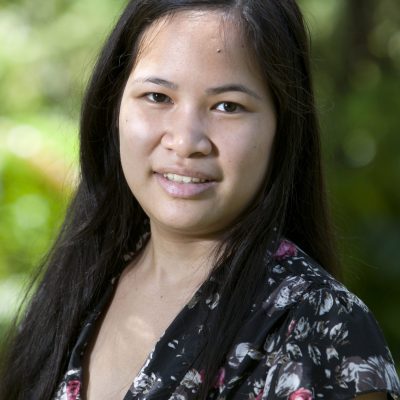
Ms Pawinee Yuhun
Ms Yuhun has extensive research experience prior to commencing with NI in the Social Partnerships in Learning research group at the School of Education. She has worked in multiple projects in the field of Regional and Workforce Development, Demography and Growth Planning, Northern Research Futures, Evaluation and Knowledge Impact, and Contemporary Indigenous Knowledge and Governance. Ms Yuhun is a co-Investigator on this HEPPP research project for three years. As an early career researcher her research experience has developed, and she has a strong record of projects.